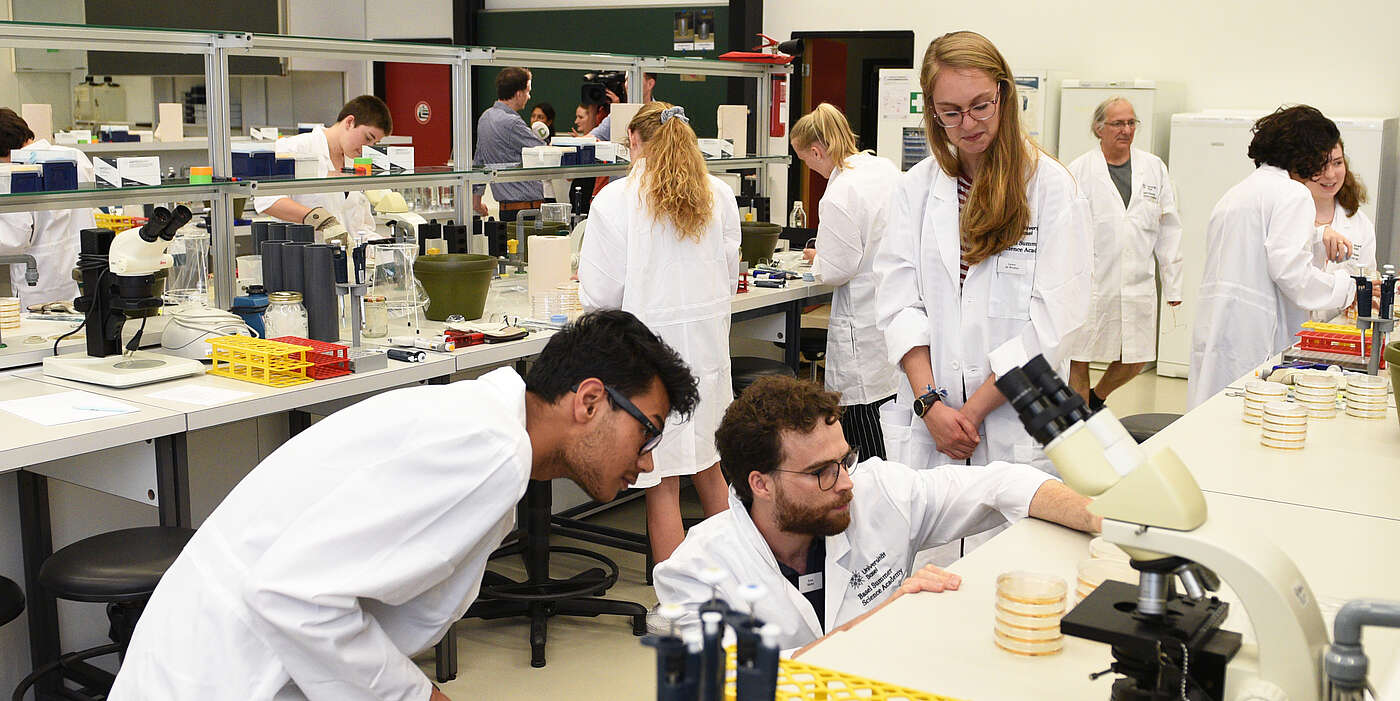For the high school students in Basel, July is Summer Holiday time. But instead of chilling and swimming in the Rhine, sixteen selected gymnasium students will discover who and what frolics about in the river during their first two holiday weeks. The participants include students from both the cantonal schools and international schools in the region. In this year’s very first “Basel Summer Science Academy” at the Biozentrum of the University of Basel, they will explore invisible worlds in the Rhine and at our doorstep.
“It is very important to us that talented young people have direct contact with science and actively take part in research,” explains Prof. Dr. Alex Schier, Director of the Biozentrum, pointing out the reasons for creating this new program. “We want the next generation to personally experience what it means to do research at a top university,” says Schier, “and the participants will also discover the diversity of the Life Science hub Basel during these two weeks.”
Exploring invisible worlds
On the search for new types of bacterial viruses, so-called bacteriophages, the students will collect water samples from the Rhine and examine them microbiologically. And the Rhine is just the start: A sewage treatment plant, the Botanical Garden as well as compost are all interesting places to catch new viruses. Yet, there is more than just sampling. The participants will learn about the microbiological methods and tools, such as working in sterile conditions, cultivating bacteria and viruses and the production of culture media.
The bacteriophages grown in the lab will then be examined more closely. The students will analyze their isolated bacteriophages using state-of-the-art microscopes, including electron microscopes, decipher the genome sequence and follow the traces of evolution in the lab.
Diverse side-program
There will be exciting lectures along with lab activities, for instance, about the defense strategies developed by bacteria, and opportunities to exchange with researchers at work. One of the highlights is a personal mini-microscope with a smartphone clip, with which the students can take pictures anywhere and at any time of the world invisible to the naked eye. And the discoverers of a new species will be immortalized in the virus’ name. Visits to the various important industrial stakeholders round up the program.
At the end of the Summer Academy the participants will have the opportunity to present their results and the photos and videos they took. The Rhine remains central to the activities even on the last day for a summer farewell apéro at the bar “Buvette Saint- Louis” near St. Johanns-Park.
Contact: Communications University of Basel, Matthias Geering



